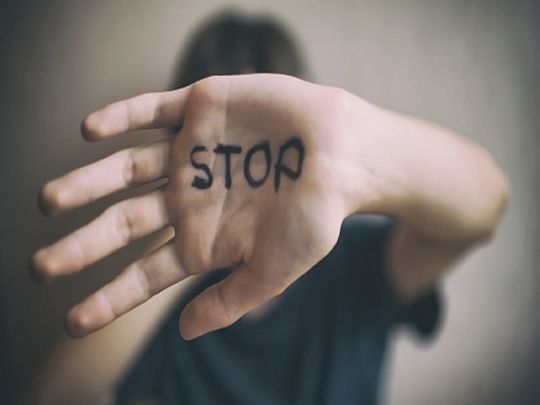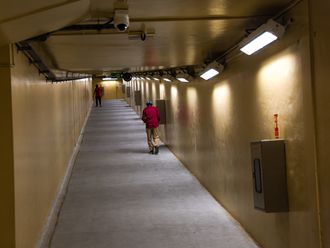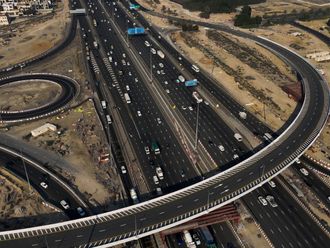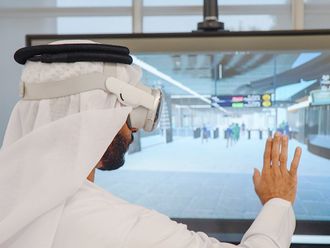
Sharjah: A 14-year-old Arab boy called the emergency number of Sharjah Police on Tuesday night to report that his mother had beaten him up. He claimed she had bitten him as well.
On receiving the complaint, an officer and an ambulance were sent to the house in Al Khan area to investigate the issue and pick up the boy [if needed]. When police reached the boy’s house, the boy’s mother told the officer to take her son with them as he was very angry and was fighting with all his family members.
She admitted that she beat her son. “I did beat him because he was fighting with his siblings as well as with his parents,” she told the officer.
Sharjah Police contacted immediately child protection department who took the boy and send him to their shelter. He was then evaluated at a local hospital.
Sharjah Police as well as the Social Services Department’s child protection centre are working to solve the issue. The Arab mother has been questioned by police. Police also explained to the parents how to deal with their son, especially since the child was at an impressionable age.
The case is with Al Buhairah Police. A police official said, “Tackling social problems should not always be rule-bound and a solution can be found based on psychological counselling too.”
How to protect children
The Child Protection and Social Welfare Department of Sharjah Social Services Department, in cooperation with Saudi German Hospital in Ajman, organised a lecture on how to protect children from abuse. The lecture was part of the activities of the International Children’s Day, which falls on November 20 every year.
The lecture was held virtually, with the aim to educate parents, specialists in the field of child protection, employees of government and private agencies on the importance of a mechanism for protecting children and protecting them from all kinds of danger and harm, family violence and external risks.
The lecture presented by Dr Yahya Ithawi, consultant neonatologist at Saudi German Hospital, dealt with introducing the types and effects of harassment, in addition to introducing the types of physical violence and the emotional, social and psychological deprivation of the victim. The lecture also dealt with methods of diagnosis, early prevention, treatment of effects and verifying violence and sexual harm to children, diagnosing and assessing the extent of the risk and consequences thereof, through a number of means. Most notable among these is the identification of signs of physical violence that can lead to the discovery of violence and danger, or the child himself or herself can disclose his exposure to harm or the danger that threatens him or her, and effective communication and private speaking skills can be used, in addition to other skills.
The lecture also introduced parents to the concept of violence and physical harm and its types, mechanisms for dealing with and seeking help in the event that they are exposed to harm from others, as well as the importance of understanding their rights within the family and how to help their children protect themselves from exposure to various types of potential harm.
Dr Al-Ithawi apprised parents about the importance of reporting in the event of suspicion or exposure of the child to harm, whether from inside or outside the family, and not to conceal a major impact that can affect the life of the child.








